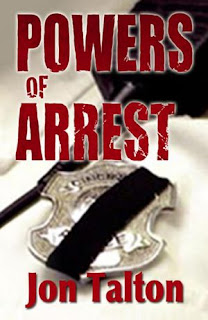 before retiring to write hardboiled crime novels full time. He and his wife, the poet Patricia Smith, live in New Jersey.
before retiring to write hardboiled crime novels full time. He and his wife, the poet Patricia Smith, live in New Jersey.He applied the Page 69 Test to Cliff Walk and reported the following:
Cliff Walk opens in 2009, when prostitution was legal in Rhode Island (true story). Politicians have been making a lot of speeches about the shame of it, but they haven't done doing anything about it. Mulligan, a wise-cracking investigative reporter for a dying Providence newspaper, suspects that's because they are being paid off. As he investigates, he is promised free sex with hookers if he minds his own business -- and a savage beating if he doesn't. His investigation takes him through the underbelly of the state's sex trade, and what he discovers there will challenge his long-held believes about sexual morality and shatter his tenuous religious faith.Learn more about the book and author at Bruce DeSilva's website and blog.
You don't get a whiff of that from page 69, which begins chapter 10. What you get instead is a bit of description as Mulligan heads to a small Rhode Island town to touch base with one of his buddies. When you read it, you need to know that Secretariat is Mulligan's pet name for his decrepit, ten-year-old Ford Bronco.
From page 69:A half hour south of Providence, the little town of Warren clings like a barnacle to the eastern shore of Narragansett Bay. Here, the water is sometimes streaked with sewage, and quahogs angry with coliform bacteria pave the mucky bottom. Man Street, several hundred yards from and parallel to the shoreline, is a postcard from the Great Depression -- old corner drugstore, red-brick town hall with Palladian windows, and ramshackle wood-frame storefronts with vacant office space on the second and third floors.
I parked Secretariat at a meter in front of a narrow storefront office two doors north of the police station. The office had housed a three-reporter bureau until the Dispatch closed it down a couple of years ago to save money. Now, black lettering on the glass front door read "Bruce McCracken, Private Investigations." I entered and found him alone, sitting behind a computer on an oak desk that had seen better days. For the desk, like the town, those better days were ninety years ago. A bank of dented metal file cabinets and an old black safe the size of a minifridge had been shoved against the back wall. The only decent pieces of furniture in the place were the black leather swivel chair he was sitting in and two client chairs lined up in front of his desk.
The Page 69 Test: Rogue Island.
Read--Coffee with a Canine: Bruce DeSilva and Brady.
--Marshal Zeringue





















